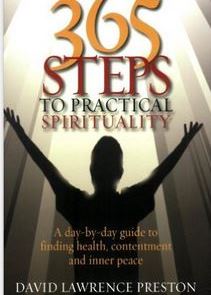Our judgements can be huge stumbling blocks. We live by our judgements, but how do we know they are correct? What right do we have to judge our fellow beings? Can we ever know what is right for anyone else?
Here I’m not thinking of everyday judgements like when to overtake, when our food is cooked or whether to but X or Y in the supermarket, but when we judge people, events etc. right or wrong, good or bad. Giving up these kinds of judgments is hard but essential for inner peace. When we stop these we become more tolerant. We see the things we used to judge differently, as opportunities to raise our vibration by thinking higher thoughts.
When you are tempted to judge another, tell yourself to stop, drop the thought and replace it with an affirmation such as, ‘I gladly and willingly accept….. as it is/they are.’
Stop judging by appearances
A few years ago, a TV advertisement showed a shaven-headed young man running along a street towards an elderly woman and then pushing her to the ground. The camera pulled back to show a pallet of concrete blocks falling from an overhead crane. Seconds later, they landed right where she would have been! Far from being a mugger, he was a hero. He had saved her life.
The point of the advertisement was, of course, that it is dangerous to judge by appearances because we don’t always see the bigger picture.
Train yourself to look for the reasons behind an individual’s behaviour and learn from it if you can, but don’t pass any judgement. People’s behaviour is driven by motives; motives are driven by perceived needs. That’s their stuff, not yours.
We label ourselves with our judgements
When we judge another, it says nothing about them but a great deal about us. For instance, judging someone to be an idiot doesn’t make them one, but it does expose you as a person who needs to judge. Who would you be if you didn’t have this need? How would your life be different?
The blame game
Blaming starts with making judgements. It fixes your awareness in the past, distracts you from constructive present moment actions and potentially sets up conflict and resentment.
Don’t blame anyone else if something appears to be wrong in your life. Instead, take responsibility for putting it right. Equally, if others seek to blame you, it doesn’t necessarily make it your fault. Their judgments belong to them, not you.
Bearing grudges harms only you
I’m often struck by the way victims of crimes react when pressed to say how they feel in front of the news cameras. Some burst into tears, some express their loss, and others express a desire for vengeance. ‘We want justice,’ they say. ‘No punishment is sufficient to repay what they did. We’ll never forgive? Why should we?’
This is understandable perhaps, but they are storing up trouble for themselves. No-one can have peace of mind while clinging to a desire for retribution. If someone treats you unfairly, let it go as quickly as possible. Acid destroys only the vessel which contains it.
©David Lawrence Preston, 6.12.2016
Follow me on Facebook and Twitter @David_L_Preston
How to Books, 2007


Leave a Reply